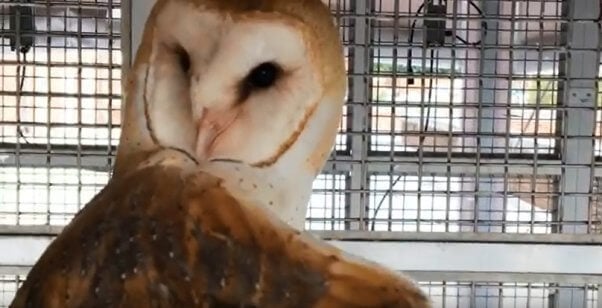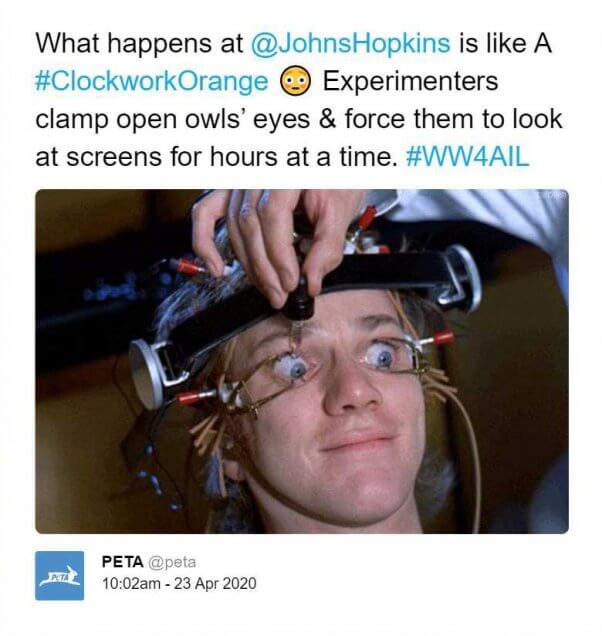Owls Are Being Tortured, Killed at Johns Hopkins for ADHD ‘Research’
Try saying it aloud: “An experimenter at Johns Hopkins University is holding barn owls captive in his laboratory, cutting into their skulls, poking electrodes around in their brains, and forcing them to watch dots on a screen—all so he can purportedly learn something about humans with attention-deficit/hyperactivity disorder.” Sounds absurd, right? Yet that’s exactly what experimenter Shreesh Mysore is doing in his torture chamber at Johns Hopkins University (JHU).

Barn owls are similar to humans in some ways—just like us, they surely don’t want to be tortured and killed for any reason, especially not so that some experimenter can pretend that he might eventually discover something about attention-deficit/hyperactivity disorder (ADHD) in humans. But for all our similarities, these birds are remarkably different from us. They’re nocturnal animals whose vision, hearing, and behavior are significantly different from ours. Their eyes are adapted to low-light conditions, for example, and their hearing is much more acute at certain frequencies.

It’s no wonder, then, that although Mysore has spent years since 2013 torturing an estimated 10 to 12 owls per year, he has no information regarding ADHD in humans to show for it. Nevertheless, the National Eye Institute and JHU continue to throw millions of dollars at him so that he and others can keep tormenting birds and other animals.

Clinical studies of humans have already told us much more about the way humans prioritize and modulate attention in the brain. We know that behavior therapy can be an effective form of treatment for children with ADHD. Sometimes doctors recommend a combination of behavior therapy and medication. We also know that eating healthy, being physically active, having a limited amount of screen time, and getting a good night’s sleep can make it easier for children to manage their ADHD symptoms. But Mysore’s deadly torture experiments on barn owls have contributed to none of this awareness—they have offered no insight into treating humans with ADHD and are irrelevant to human health.
What Is a Curiosity-Driven Experiment?
Curiosity-driven experiments using animals are a misguided waste of money. Taxpayer-funded research dollars should instead be devoted to human-relevant, non-animal studies that actually help people. At JHU, Mysore clamps barn owls’ eyes open …
… and bombards the birds with lights and sounds for hours, all while poking electrodes around in their brains, mutilating their brain tissue so severely that they eventually become “unusable” to him. These experiments purport to seek information on ADHD in humans—by torturing, observing, and killing birds. Tormenting owls and pretending that doing so will tell us something about humans may have advanced this experimenter’s career, but the taxpayer-funded waste and the cruelty to animals can’t be excused.
Tell Johns Hopkins University to End This Torment Now!
Join us and more than 180,000 supporters in urging JHU to stop these cruel and useless experiments on owls on its campus, release the animals to a reputable sanctuary, and embrace modern, animal-free research methods that offer human patients real hope for cures and treatments.


